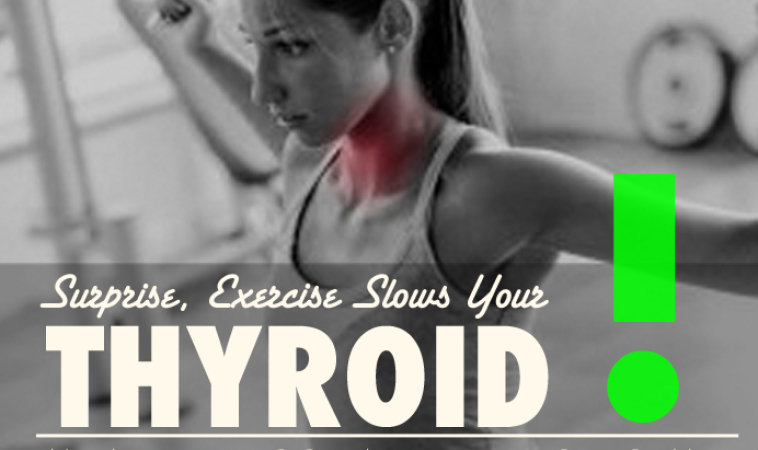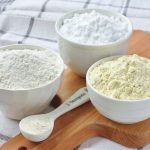Dr. Richard Maurer, ND
@DrRichardMaurer
The thyroid gland has become an unruly scapegoat in the pasture of self-help and wellness. The past decade of research has eroded the tidy line that linked hypothyroid universally to fatigue and weight gain. Why is the thyroid gland erroneously blamed when she might be doing her job, perfectly? Let’s review her job description.
Metabolism is the sum of the physical and chemical processes in an organism by which its material substance is produced, maintained, and destroyed, and by which energy is made available.Anabolism requires energy to build complex tissue andCatabolism releases energy as complex tissue is broken down into simpler components.
Humans, and most other organisms, have evolved to favor anabolism, especially when times get tough. Not surprisingly then, our endocrine system is brilliantly prepared to prevent you from burning out.
A simple downward adjustment of the idle speed of your body helps preserve precious calories, just as I use less oil to heat my house when I keep the temperature set to 59F rather than 62F. And like my New England thrift, your thyroid gland participates in similar survival adaptation—slowing the rate that you burn precious calories to preserve capital. The active form of your thyroid hormone is called Triiodothyronine, or T3. It is partially responsible for the rate you burn calories while at rest. And numerous studies have confirmed the effect of exercise on the downward regulation of T3 activity.
First, let’s review thyroid hormone tests.
Reference ranges from The Blood Code are listed below—variation in reference ranges occurs between labs: Non-U.S. ranges are listed as (S.I. values).
- TSH: 0.4-4.0 uIU/mL
(S.I.: 0.4-4.0 mIU/mL)
- Free T4: 0.7-1.9 ng/dL
(S.I.: 11.6-21.9 pmol/L)
- Free T3: 2.3-4.2 pg/mL
(S.I.: 0.035-0.065 pmol/L)
No major exercise should be done in the hours prior to a blood draw, as TSH levels can elevate and Free T3 can reduce with exercise. [More on this in a moment.]
Your TSH is produced by the pituitary gland and directs the thyroid gland to produce more or less thyroid hormone (T4) depending upon the conditions of the day. A slightly elevated TSH, between 3-6 uIU/mL implies that the pituitary wants more thyroid hormones from the thyroid gland. This top-down linear model dominated the explanation of thyroid regulation for decades. Patients were prescribed a thyroid hormone, which resulted in lower TSH, but patients often felt no better. Because T4 is not very metabolically active, it must be converted to active T3, which packs the punch for at-rest cellular metabolism.
A class of enzymes (DIO) resides in every cell of your body and regulates the conversion between inactive T4 and active T3. Here lies brilliant checks and balances—thyroid hormone comes from the thyroid gland, but the metabolic activity is regulated within each tissue of your body independently. Researchers continue to discover new roles and mechanisms for the DIO enzymes and acknowledge that they play a primary role in your thyroid metabolism.
Why do you need to know about thyroid activation and hormonal stuff? Because there are arcane medical programs that use huge caloric restrictions for weight loss. And there are doctors that prescribe excessive thyroid hormone to stimulate metabolism. Here is why these practices are ill-advised and how you can better understand your thyroid activity.
- Diets of less than 1800 calories reduce T3 and slow metabolism within days of onset compared to 2400 and 2800 calories.1
- Intensive exercise, such as interval training, causes low T3 that lasts >24 hours.2 Even moderate exercise for > 20 minutes results in lower T3 levels.3 And less conditioned athletes have a greater hypothyroid effect from exercise.4
- Under stressful situations, the body lowers T3, to preserve capital. Fortunately, as fitness improves; stress has less of an adverse effect on thyroid and other endocrine function.5
- As we age, lower T3 is linked to longevity:6 Longer life is also linked to higher TSH, lower T4 and lower T3 in people over age 65.7
Who required medication treatment? Those with TSH greater than 8uIU/mL or thyroid peroxidase antibodies greater than 30 IU/mL were in a category requiring thyroid medication.8[Anyone with a TSH >5 uIU/mL should see a healthcare provider. -RM]
Clinically, I hope you are able to see mild hypothyroid activity as a unique metabolic compensation rather than a frank disease. Here are my go-to recommendations for exercise for those with hypothyroidism, whether on medication or not.
- Exercise in the morning. Before any food intake. It does not need to take long, just enough to heat you up. Five minutes is enough if it’s strenuous enough.
- Caloric restriction should be avoided. Too often people try to double-up on weight loss efforts—both increasing activity and restricting calories. For those with any hypothyroid, this will backfire.
- Strenuous exercise is best done for short intervals. The benefits of interval-style circuit training are inarguable, but after twenty to thirty minutes, T3 activation reduces, as your body compensates for the heating effect of exercise.
- Keep conditioned. Less-conditioned people have a greater hypothyroid response to exercise. They also have more adverse effects from stress. It is easier on your endocrine system if you are fitter.
- Exercise daily. The weekend warrior hypothyroid patient will not feel great. Vigorous exercise on only Saturday and Sunday results in more hypothyroidism going into Monday. Exercise must be a daily routine, not an occasional event. Fortunately, even short duration activity can be enough.
The Blood Code book carries a full list of research citations.
References:
- Fontana, L et al. Effect of long-term calorie restriction with adequate protein and micronutrients on thyroid hormones. J Clin Endocrinol Metab. 2006 Aug;91(8):3232-5.
- Hackney AC, et.al. Thyroid hormonal responses to intensive interval versus steady-state endurance exercise sessions. Hormones (Athens). 2012 Jan-Mar;11(1):54-60.
- Ciloglu, F et al. Exercise intensity and its effects on thyroid hormones. Neuroendocrinology Letters No.6 December Vol.26, 2005
- Hesse V, et al. Thyroid hormone metabolism under extreme body exercises. Exp Clin Endocrinol. 1989 Sep;94(1-2):82-8.
- Mastorakos G. Exercise as a stress model and the interplay between the hypothalamus-pituitary-adrenal and the hypothalamus-pituitary-thyroid axes. Horm Metab Res. 2005 Sep;37(9):577-84.
- Rozing, M.P., et al., Low serum free triiodothyronine levels mark familial longevity: the Leiden Longevity Study. J Gerontol A Biol Sci Med Sci, 2010. 65(4): 365-8.
- Rozing, M.P., et al., Familial Longevity Is Associated with Decreased Thyroid Function. J Clin Endocrinol Metab, 2010.
- Gesing A, et al. The thyroid gland and the process of aging; what is new? Thyroid Research 2012, 5:16.

















